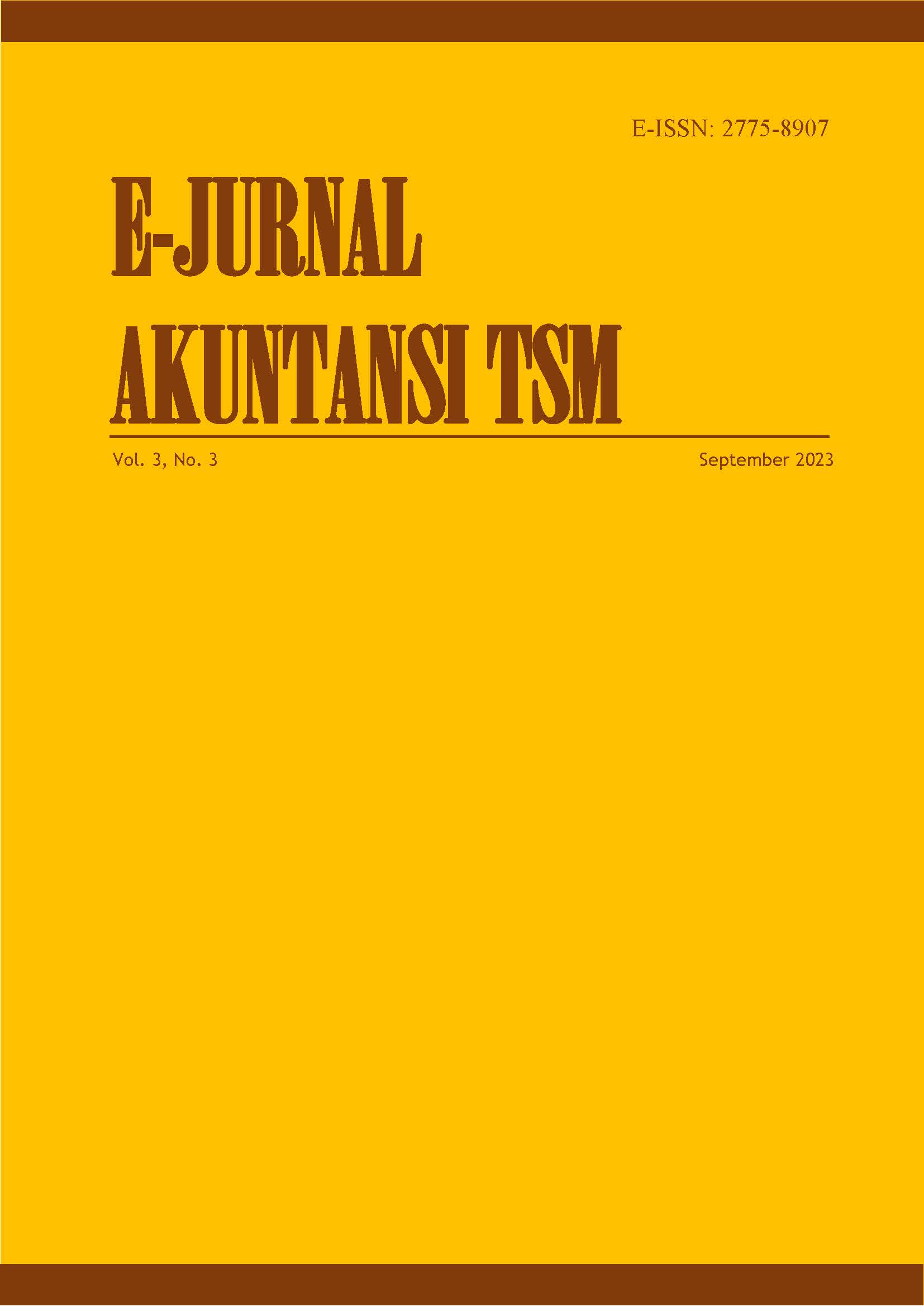SALES GROWTH AS A MODERATOR OF THE EFFECT OF INVENTORY INTENSITY AND THIN CAPITALIZATION ON TAX AVOIDANCE
DOI:
https://doi.org/10.34208/ejatsm.v5i2.2867Keywords:
Inventory Intensity, Thin Capitalization, Tax Avoidance, Sales GrowthAbstract
The purpose of this research is to determine the effect of Inventory Intensity and Thin Capitalization on Tax Avoidance with Sales Growth as a Moderating Variable. This research uses a sample of Consumer Non-Cyclical sector companies listed on the Indonesia Stock Exchange from 2019 to 2023. The data used in this research includes financial statements and annual reports. The sampling technique applied is purposive sampling, where from 132 companies in the Consumer Non-Cyclical sector, a sample of 36 companies over 5 years is selected, resulting in 180 sample data. The analysis used is panel data regression analysis with the fixed effect regression model for both equation I and equation II. The data was processed using Eviews12 software. The results show that, simultaneously, inventory intensity and thin capitalization have a significant effect on tax avoidance. Partially, both inventory intensity and thin capitalization also have a significant effect on tax avoidance. Furthermore, the results of moderating variable indicate that sales growth does not moderate the effect of inventory intensity on tax avoidance, while sales growth does moderate and weaken the effect of thin capitalization on tax avoidance.
Downloads
Published
Issue
Section
License
Copyright (c) 2025 E-Jurnal Akuntansi TSM

This work is licensed under a Creative Commons Attribution-ShareAlike 4.0 International License.



















